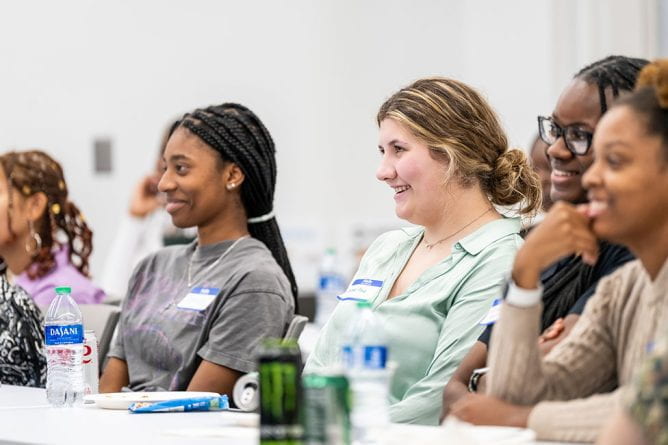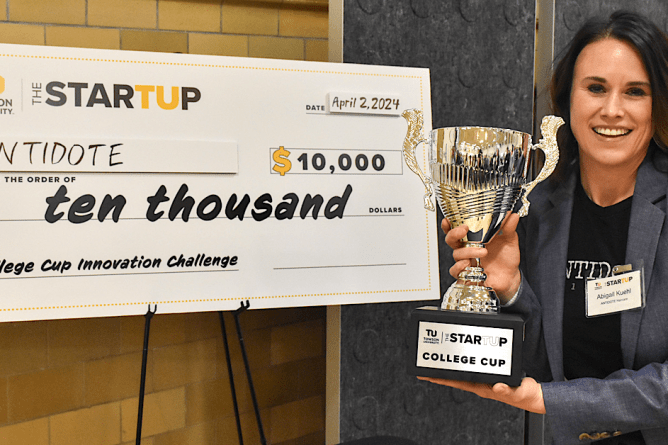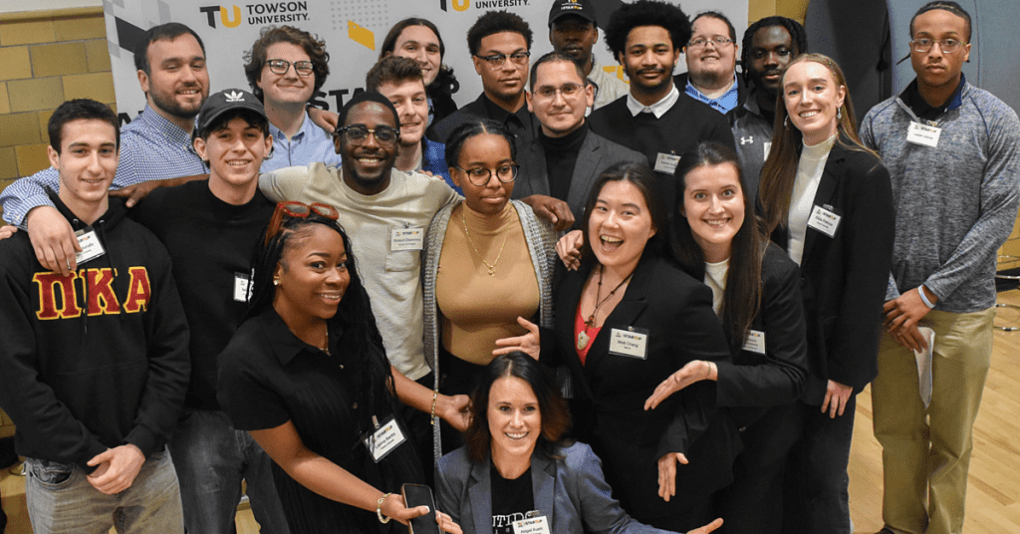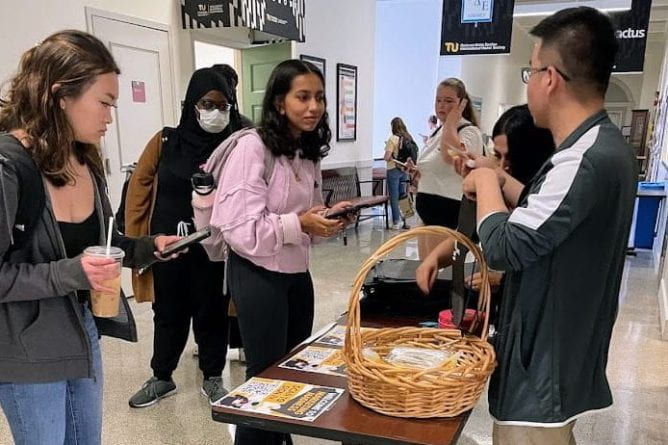College of Business & Economics’ program makes a difference for women in business
BY TOWSON UNIVERSITY
Towson University’s MentHER program in the College of Business & Economics (CBE) received the 2024 Inspiring Programs in Business Award from Insight Into Diversity magazine, the largest and oldest diversity and inclusion publication in higher education. The award honors colleges and universities that encourage and assist students from underrepresented groups to enter the field of business. TU is featured, along with 27 other recipients, in the April 2024 issue of the magazine.
The MentHER program connects professional businesswomen with CBE sophomores in one-on-one mentoring relationships, who in turn mentor high school students within Baltimore. Program content focuses on financial literacy, career planning and life and workplace skills through guided discussions, workshops, mentoring sessions and presentations.
“This recognition attests to our success in empowering women not only at TU but in high schools throughout Baltimore,” says Lauren Tigue Meredith, professional development partner in CBE and facilitator for the MentHER program. “The relationships these women build through one-on-one mentoring prepares them for their academic and career journeys.”
Insight Into Diversity magazine selected the MentHER program in CBE at Towson University because it combines networking and mentorship among women to support the growth, education and empowerment of college and high school students in the Baltimore area. Combining evidence-based practices for mentorship programming, the program has proven success in preparing participants for a career. In fact, 67% of participants had more confidence with their career plan after participating.
“Our goal at TU is to help all our students succeed in college and beyond graduation, and the MentHER program supports this goal,” says Aneil Mishra, dean of the College of Business & Economics. “This program grows personal and professional networks for students by meeting and building connections with other supportive women. It provides the foundation for identifying and advancing the essential components for students’ future success.”
Inspiring Programs in Business Award winners were selected by Insight Into Diversity based on efforts to inspire and encourage a new generation of young people to consider careers in business through mentoring, teaching, research and successful programs and initiatives.
“We know many business programs are not always recognized for their success, dedication and mentorship for underrepresented students,” says Lenore Pearlstein, owner and publisher of Insight Into Diversity magazine. “We want to honor the schools and organizations that have created programs that inspire and encourage young people who may currently be in or are interested in a future career in business. We are proud to honor these programs as role models to other institutions of higher education and beyond.”
For more information about the 2024 Inspiring Programs in Business Award, visit insightintodiversity.com.
For media inquiries, email Jamie Abell at jaabell@towson.edu.
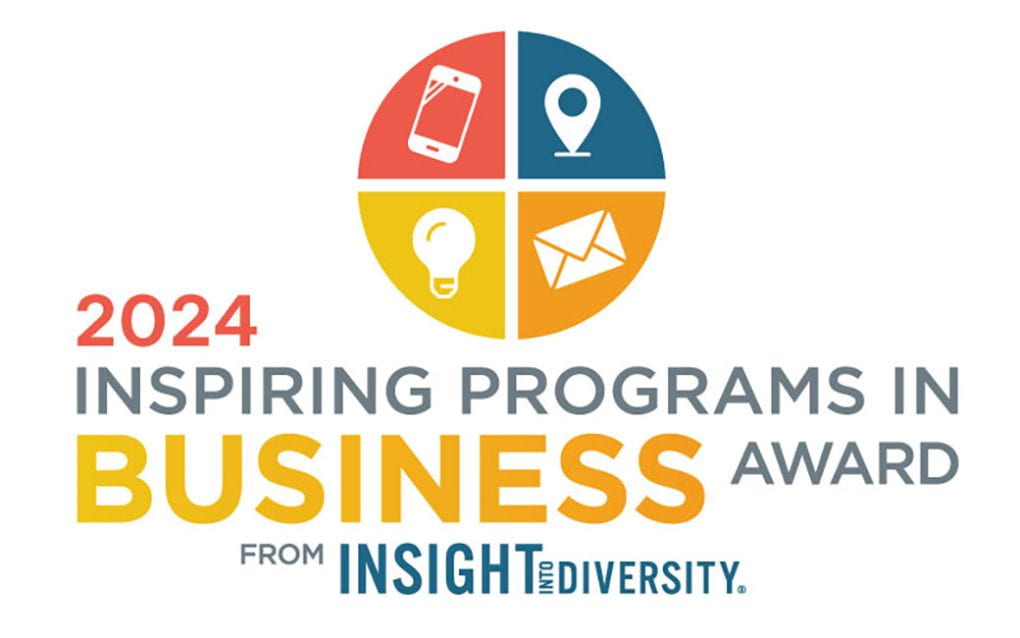
About Towson University
Towson University is Maryland’s university of opportunities. With more than 150 years of experience pushing possibilities, TU is a nationally recognized leader in inclusive excellence, social mobility, research and discovery. As the largest university in greater Baltimore, TU’s momentum is always accelerating, with nearly 20,000 students and 200 bachelor’s, master’s and doctoral degree programs in the liberal arts and sciences and applied professional fields. Located amid one of the East Coast’s cultural and economic epicenters, TU is a beacon and powerful catalyst in the Mid-Atlantic, partnering with hundreds of businesses and organizations, impacting communities and fueling change. TU meets the holistic needs of each student to achieve success, a result of a deeply inclusive culture with a focus on equity among all students, faculty and staff.
About INSIGHT Into Diversity
INSIGHT Into Diversity magazine is the largest and oldest diversity and inclusion publication in higher education today and is known for its annual INSIGHT Into Diversity Higher Education Excellence in Diversity (HEED) Award, the only award that recognizes colleges and universities for outstanding diversity and inclusion efforts across their campuses. Insight Into Diversity magazine presents timely, thought-provoking news and feature stories on matters of diversity and inclusion in higher education and beyond. Articles include interviews with innovators and experts, as well as explorations of best practices and profiles of exemplary programs. On our Career Center, readers will also discover career opportunities that connect job seekers with institutions and businesses that embrace a diverse and inclusive workforce. Current, archived, and digital issues of Insight Into Diversity magazine are available online at insightintodiversity.com.




